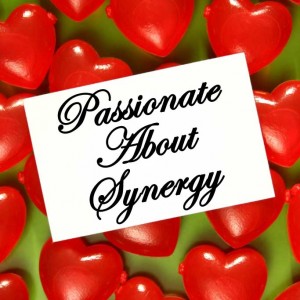B2B copywriter seeks similar
If you’re seeking a dynamic, proactive strategic partner who can add value across the board, leaving you free to focus on running your life, your search is over.
I’ve been providing innovative, robust and scalable relationship solutions for over 15 years.
In that time, I’ve built up an enviable reputation for agility, flexibility and responsiveness, transforming myself into an acknowledged market leader.
 In today’s fast-moving, ever-changing domestic environment, it pays to be ahead of the curve.
In today’s fast-moving, ever-changing domestic environment, it pays to be ahead of the curve.
Drawing on my proven experience and expertise, I’ll work closely with you on a diverse range of household tasks, leveraging cutting-edge best practice in key areas such as cleaning, cooking and washing up.
My bespoke, fully customisable modular services are tailored to suit your individual requirements, from making a cup of tea in the morning to working the DVD.
I know how frustrating it can be when your man drifts off while you’re telling him about your day.
That’s why I developed Male Conversational Skills™.
MCS™ is a unique, specially developed mental technology that facilitates plausible verbal responses in a wide range of situations, even when I’m actually thinking about the cricket or Monica Bellucci.
At the end of the day, I exceed expectations with my passionate client liaison.
My seamlessly integrated end-to-end service offer extends from taking your briefs and growing my business through to project completion and exit strategy.
While others are focusing on their low-hanging fruit, I’ll be pushing your envelope, thinking outside your box and giving you a huge paradigm shift.
Drop me a line at Box 4251. I’m confident we can unlock major synergies going forward.
Comments (9)
Comments are closed.
Not going to lie Tom. The last few paragraphs made me a little bit ill.
@Andy
There’s a serious point here though. Why do so many B2B buzzwords support that sort of double meaning? I think we should be told.
Sex sells, Tom. Sex sells.
What I’ve never understood is if everyone hates B2B jargon so much, why is there so much of it around? The blame lies with everyone – those who write it, those who commission it and sign it off, those who object to writing it but end up throwing their arms in the air and saying “I’m fed up arguing and it’s your money” and those who read it, understand none of it (because it’s all meaningless) and nod sagely pretending they get every word.
The world is full of B2B bull and I want nothing to do with it. What’s wrong with copy people can understand?
Suggest you all read Why business people speak like idiots.
@Simon
This rather puerile post probably isn’t the place for an in-depth discussion, but I will just make a few points.
Firstly, going against the client’s preference is not a simple matter of will. So far from ‘everyone’ hating jargon, mangy firms regard buzzwords as good B2B writing. If you argue for something different, you are, in their eyes, arguing for something substandard. That makes you look borderline incompetent, not to mention obstructive and perhaps unprofessional. Writers could walk away from jobs where they’re asked to write this way, but that’s like a decorator turning down a job because he disagrees with the customer’s choice of paint.
Secondly, buzzwords offer the comfort of conformity. Lots of firms are not ready to express their value in simple, almost childlike language. They want to look grown up and professional. Often, I’ve written something very simple and direct, but the client’s rejected it on grounds of tone. To an extent, complex ideas do demand complex expression – if you simplify it too much, it can come across as simplistic.
I certainly agree that copy should be understandable, but actually I think most characteristically ‘B2B’ language is fairly easy to understand. It’s just the received idiom of this market sector. Other sectors, like confectionery and fashion, have their standard-issue tones of voice. Again, you can go against the grain and use a different idiom, but you do run the risk of the reader being disorientated, or mistaking your purpose. When straightforward communication is the aim, it’s probably worth going with the flow in terms of audience expectations.
B2B jargon is shocking but I have no problem with it: http://www.mightier-than.com/blog/the-copywriter-who-has-no-problem-with-jargon/
I remember trying to change the way a well known B2B tech company used to talk about itself a few years back. My campaign to introduce a more human, customer focused style (heavily influenced by Drayton Bird’s blog) was going great initially. My copy was getting signed off with glowing feedback that, for the first time, they could actually understood what their marketing was talking about.
But then I got too high up the ladder and started dealing with people (on the US side, if that has any bearing) who had different ideas about how business writing should sound. Suffice to say, my copy got rejected and I lost the client.
I know where I stand on B2B jargon and cliches (http://copywriterscrucible.com/the-copywriter%E2%80%99s-crucible-puts-cliched-copywriting-on-trial/), but I think I’m going to toe the corporate line in future.
Simon Fraser, I too fail to understand why there is so much around B2B jargon despite it being hated by everyone. Also you have suggested reading “Why business people speak like idiots? What is it all about?
I wrote this on industry jargon: http://www.repairtxt.com/jargon-is-king-wants-to-conquer-every-content-territory/